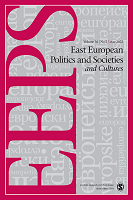Being Polish, Jewish, and Tarnovian: Youth and Polyvalent Senses of Belonging during the Second Polish Republic
Being Polish, Jewish, and Tarnovian: Youth and Polyvalent Senses of Belonging during the Second Polish Republic
Author(s): Agnieszka WierzcholskaSubject(s): Political history, Social history, Social Theory, Sociology of the arts, business, education, History of Antisemitism, Sociology of Politics, Sociology of Education
Published by: SAGE Publications Ltd
Keywords: belonging; Tarnów; Second Polish Republic; education; schools; Jews; Poles;
Summary/Abstract: “This was my rudest awakening that I was Jewish. I was not Polish, I was horrified!” Cesia Honig, from Tarnów, perceived herself as a Polish patriot until 1938, when she was insulted for being a Jew by Gentiles, who claimed to be the only so-called real Polish patriots. In the late 1930s, a polyvalent sense of belonging was no longer acceptable in Poland’s public sphere, although urban spaces during the Second Polish Republic had been multiethnic realms of interaction. Excluded from the Polish nation by local compatriots, Cesia painfully experienced being turned into the Other in a community to which she thought she belonged. This article explores interethnic relations in the local community of Tarnów, a western Galician town, during the interwar period. It leans on late witness testimonies, which are read against contemporary sources. The article dwells into dense contact zones between Jews and non-Jews in the urban space. Special attention is paid to the role of schools. As this paper shows, social class also played a salient role in shaping narratives of belonging.
Journal: East European Politics and Societies
- Issue Year: 37/2023
- Issue No: 01
- Page Range: 139-158
- Page Count: 20
- Language: English
- Content File-PDF

